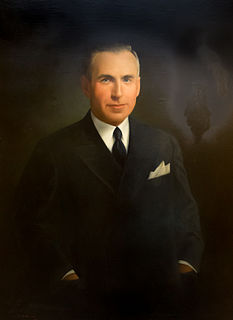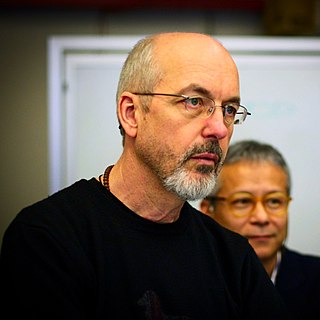A Quote by Mick Dodson
It's our landscape which defines our identity and it's what I'm most grateful for.
Related Quotes
Today the thing I find myself thinking about the most is our landscape...I think it's something a lot of us take for granted; for many of us Australia is just there but how many of us have really seen it, have seen Kakadu or Kings Canyon? I know I hope to at some stage, to see Uluru at sunset and the ancient art in the Abrakurrie caves. I think it's our landscape which defines our identity and it's what I'm most grateful for.
The identity of just one thing, the "clash of civilization" view that you're a Muslim or a Hindu or a Buddhist or a Christian, I think that's such a limited way of seeing humanity, and schools have the opportunity to bring out the fact that we have hundreds of identities. We have our national identity. We have our cultural identity, linguistic identity, religious identity. Yes, cultural identity, professional identity, all kinds of ways.
In a recent survive of Millennials around the world asking what most defines our identity, the most popular wasn't nationality, ethnicity or religion. It was "citizen of the world." That's a big deal. Every generation expands the circle of people we consider one of us. And in our generation, that now includes the whole world. This is the struggle of our time. The forces of freedom, openness, and global community against the forces of authoritarianism, isolationism, and nationalism - forces for the flow of knowledge, trade, and immigration, against those who would slow them down.
While we tend to equate motherhood solely with maternity, in the Lord’s language, the word 'mother' has layers of meaning...Mothe rhood is more than bearing children, though it is certainly that. It is the essence of who we are as women. It defines our very identity, our divine stature and nature, and the unique traits our Father gave us.
That which you or I think is most unique about ourselves we hide. In ordinary discourse, in the normal state, we share our common self, our superficial self. Yet what is most unique about us is what has the greatest potential for bonding us. When we share our uniqueness, we discover the commonality in greatness that defines everyone on the planet.
Why shouldn't I be interested in politics? That is to say, what blindness, what deafness, what density of ideology would have to weigh me down to prevent me from being interested in what is probably the most crucial subject to our existence, that is to say the society in which we live, the economic relations within which it functions, and the system of power which defines the regular forms and the regular permissions and prohibitions of our conduct. The essence of our life consists, after all, of the political functioning of the society in which we find ourselves.
It's like we're suffering from an identity crisis, and that identity is in our arts and the fact that we don't find it chief amongst our agendas to teach our kids who we are as a nation and the battles we've had on this ground and how they've been successfully resolved. We can't enjoy the fruits of the labor of our ancestors.
The aggressive incoherence of our common surroundings can be described as entropy made visible. The way we have disposed things on the landscape leads us in the direction of disorder and death. They are categorically evil. These dispositions are destroying our only home-planet and other organisms that share it. They defeat our need to care about where we are and the things in place there. They prompt us to feel that civilization is not worth carrying on. They rob us of our identity and our will to live. These things are not about personal taste or style.
When we cultivate mystical awareness or transcendent identity--which is a natural outgrowth of meditation and other practices--what happens is that we begin to take a witness position on our own lives, and that includes our minds. We break the illusion that we think our own thoughts, which is not always the case. Some ideas just arrive in our heads.

































